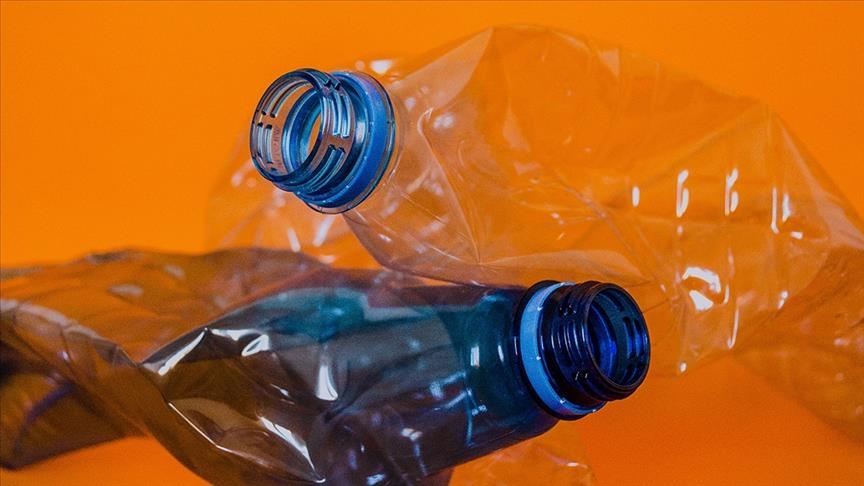Principle of 'avoidance and prudence’ key to eliminating plastic pollution: Expert
Staying away from plastic as much as possible, adopting behaviors, consumption habits that do not require it, are important, says academic

ANKARA
The principle of "avoidance and prudence” should be the motto for both individuals and states on using plastics in all aspects of life, according to a concerned academic.
Sedat Gundogdu, a marine biologist at Cukurova University in the southern Turkish city of Adana, told Anadolu that he has been doing research into plastic pollution as he serves on a board of spokespersons of a coalition of scientists pushing for an effective plastics agreement.
“Together with this coalition, we are trying to voluntarily provide scientific information to states participating in negotiations of a UN plastics agreement for use in negotiations,” he said.
On the plastic treaty negotiations in Nairobi, Kenya, he said a final version of the deal is expected in 2025.
There have been three negotiations about the treaty so far – in Uruguay, Kenya and France, and the fourth is planned for Canada next April, he noted.
On the content of the agreement, he said: “A zero draft, in which various options were presented for pollution and production related to all kinds of plastics -- including the chemicals used – with several options to states, has been published.”
“Especially the big oil-producing states, including Iran, China, Saudi Arabia and Russia, have formed a group of ‘like-minded countries’ that the items in the zero draft should be removed from the negotiations, and they have taken a stance that it should be rewritten,” he said..
Noting that those states expressed that there is no need for a zero draft, no need to talk about plastic pollution and reducing the production of plastic, he said instead they demanded that if there is going to be a zero draft, it should mention the “cyclicality and benefits of plastic.”
“The UN has published a new zero draft instead of the old one, and in this new one, there is a draft that has less substance than the previous one and is left more open-ended,” he said.
Binding, otherwise ‘stillborn’
Gundogdu underlined the need for a consensus, especially Article A of the treaty, which has “the most preventive proposals.”
“We advocate to be agreed on article A, and 61% of member states think the same as us and support us,” he said.
If states can manage to have a consensus on the article, then “it will ultimately result in a situation such as reducing plastic production by close to 40% in the next five or 10 years,” said Gundogdu. “If there is nothing irreconcilable about this and Article A does not contain any requests for the production of plastic, contains initiatives, contains legal binding, then this agreement will become a stillborn agreement like the Paris Climate Agreement.”
“And ultimately, we will also miss the opportunity to prevent any problems that will arise about plastic pollution,” he warned.
‘Principle of avoidance and prudence’
On what individuals can do to reduce the contamination of ecosystems with plastic and reduce the use of the material, Gundogdu said individual precautions might fall short as it is a “systematical issue.”
“We know that plastic is produced too much. Too many chemicals are used. And we don't know what these chemicals are,” he said. “We need transparency about this.”
“But at the same time, of course, we can do some things individually to get rid of the impact of plastic, the impact and the exposure to plastic.”
Underlining the importance of applying ”the principle of avoidance and prudence" by everyone, he indicated: “It is only through behaviors and consumption habits that you should stay away from plastic as much as possible and not require the need to use plastic as much as possible.”
There are also measures that states should take in their own affairs, Gundogdu said: “For example, the deposit return system needs to be made to cover all types of packaging and in accordance with not only recycling but also reuse.”
“Again, refillable stands and shelves should be mandatory in grocery stores, especially in large ones, chain grocery stores, so that people have the opportunity to buy the refillable products they want with their own containers when they go with their own containers,” he advised.
Touching on the drinkable water issue, he warned: “There are very serious amounts of nano plastics in bottled water in plastic packaging, and we know that these nano plastics reach the human brain, reach the placenta, reach breast milk.
“So the main thing that needs to be done is to have an environment where people will not have to drink water in a pet bottle, and the water flowing from the fountain is drinkable,” he suggested. “Ensuring this should again be one of the main tasks of local governments.”
“Again, local governments need to invest more in waste management infrastructure,” he said. “Because if paving, asphalt or landscaping is a widely performed service, waste management is much, much more important than that.”
“It is very important both from the point of view of community health, environmental health and from the point of view of the economy,” he said. “Because we cause many resources to be wasted in garbage due to insufficient waste management.”


